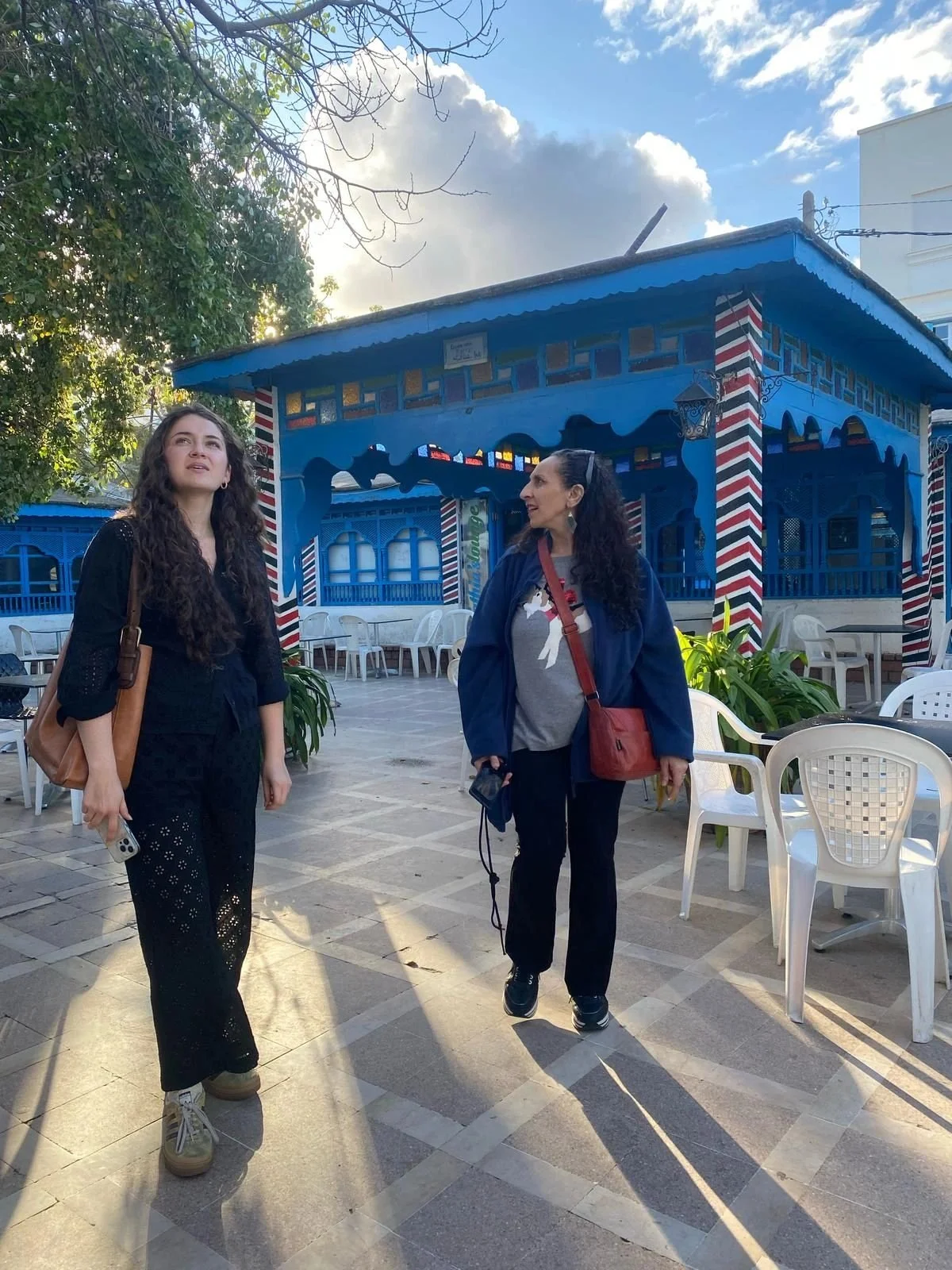Crossing the Mediterranean: Exploring Tunisia Ancient to Contemporary
The students of The Mediterranean Core Art Program, including MFA and MAAH students, participated in a one-week field study to Tunisia from 30 March to 05 April. The trip offered an immersive opportunity to explore the modern and contemporary art scene in Tunisia through visits to historical sites, museums, galleries, and contemporary art spaces.
Traveling to Tunisia there was a clear picture in my mind of what the contemporary art would look like without having seen very much before. It was as if my mind had filled in all the blanks with, Tunisian inspiration would come from Islamic tiles, manifesting as geometric designs and perhaps they were also inspired by great mosques and Islamic architecture. I was expecting designs to take inspiration from mishrabia and ablaq. I envisioned the repetition of patterns; sharp angles mixed with vegetal motifs abstracted for modernity and the final touch would be a bit of classical antiquity. The Mediterranean Seminar course prepared me on so much of Tunisia’s history from ancient to contemporary and yet it wasn’t until I went that I was able to see how orientalist my preconceptions were.
In Tunisia, we went to historical sites, museums, galleries, and a variety of community based art collectives I was able to meet art historians, gallerists, and contemporary artists. Taking tours of museums and places like the Medina left an unforgettable impression with the guidance of Dr. Mohamed-Ali Berhouma, Assistant Professor at the Higher Institute of Fine Arts in Nabeul (Tunisia) and Dr. Adnen el Ghali, a researcher and specialist of the Medina. I still remember looking at a tiled façade just outside the Medina and Dr. Adnen el Ghali explaining where each design came from, Cordoba to the Ottomans and Italians all on one façade. If there’s one thing, I’ve come to expect about the Mediterranean it’s that none of it was made in a vacuum. Through colonization, trade, and migration cultures have been intertwined. Something I didn’t expect was how globalization has connected and inspired contemporary Tunisian artists.
Meeting the artists in Tunisia felt like blinds had been lifted, it was incredibly grounding to have a person in front of me sharing their experiences and hearing their passion. Our class visit to Ymen’s Atelier completely changed my frame of mind around contemporary artists, specifically our conversation about identities. Ymen Berhouma, an artist, spoke on how the identities of Tunisian and Contemporary had been confining and a bit orientalist (Orientalism is the deliberate distortion of North African and Levantine cultures by the West, portraying them as vulgar, erotic, violent, and uncivilized, rooted in colonial attitudes). After this experience my approach to artwork has opened to a new set of information, from gaining more context on recent politics, the environment, and just listening to their inspiration and direction, my perspective and approach to art has been transformed.








